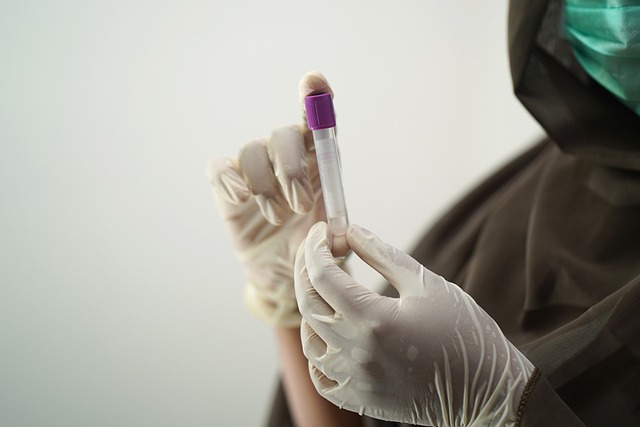Vitamin D, crucial for bone health, immune function, and mental well-being, is often deficient in the UK due to limited sun exposure. Individuals with diabetes are at higher risk and should consider a Diabetes Blood Test UK to assess their Vitamin D levels. Research links optimal Vitamin D levels to reduced type 2 diabetes risk and improved blood sugar control. The simple testing process involves consulting a healthcare provider, having a blood test, and receiving personalized recommendations based on results.
“Uncover the power of Vitamin D: a key player in your overall wellness. This comprehensive guide explores the significance of testing Vitamin D levels, especially for those concerned about diabetes management in the UK.
We delve into the science behind Vitamin D’s role in maintaining health and its surprising link to diabetes. Additionally, we provide a straightforward step-by-step process for UK residents to understand and access Diabetes Blood Test services, empowering you to take charge of your well-being.”
- Understanding Vitamin D: The Importance of Testing
- Vitamin D Levels and Diabetes: What's the Connection?
- Getting Tested: A Step-by-Step Guide for UK Residents
Understanding Vitamin D: The Importance of Testing
Vitamin D, often referred to as the ‘sunshine vitamin’, is a crucial nutrient essential for maintaining overall health and wellness. It plays a vital role in supporting bone health by promoting calcium absorption, which is necessary for strong bones and teeth. Beyond bone health, Vitamin D has been linked to numerous other bodily functions, including immune system modulation, muscle strength, and even mental well-being.
Testing Vitamin D levels is an important step towards achieving optimal wellness, especially for individuals at higher risk of deficiency. In the UK, a Diabetes Blood Test is often recommended to assess Vitamin D status, as people with diabetes are more susceptible to Vitamin D insufficiency. This simple test can help identify if an individual has adequate Vitamin D levels or if supplementation is necessary to reduce the risk of various health issues and promote overall well-being.
Vitamin D Levels and Diabetes: What's the Connection?
Vitamin D levels have been linked to a reduced risk of developing type 2 diabetes, as well as better blood sugar control in those already diagnosed. Research suggests that optimal vitamin D levels can play a crucial role in insulin sensitivity and glucose metabolism. A study published in Diabetes Care found that individuals with higher vitamin D levels had a significantly lower chance of developing diabetes over time.
In the UK, where seasonal sun exposure can lead to vitamin D deficiency, considering a Diabetes Blood Test UK might be beneficial for those at risk or managing diabetes. Adequate vitamin D intake and status could contribute to better overall health outcomes, including a potential positive impact on metabolic health and blood sugar regulation.
Getting Tested: A Step-by-Step Guide for UK Residents
In the UK, Vitamin D levels testing is an important step towards overall wellness, especially for individuals concerned about their bone health and immune system. The process is straightforward and non-invasive, typically involving a simple blood test. To get tested, UK residents can follow these steps:
1. Consult Your Healthcare Provider: Start by scheduling an appointment with your GP or a healthcare professional who can guide you through the testing process. They will assess your medical history and determine if a Vitamin D test is necessary. This step is crucial, especially for those at higher risk of deficiency due to age, lifestyle, or underlying health conditions like diabetes.
2. Request the Test: During your appointment, ask your healthcare provider to prescribe a Vitamin D blood test. The test is often referred to as a 25-hydroxyvitamin D (25(OH)D) test in clinical settings. Once prescribed, you can visit your local pharmacy or a specialist clinic for the sample collection. It’s important to follow the instructions provided regarding when and how to give the sample, usually a simple finger prick or blood draw from a vein.
3. Wait for Results: After submitting your sample, you’ll receive your test results within a few days or weeks, depending on the testing facility. Your healthcare provider will explain what the results mean and recommend appropriate actions based on your Vitamin D levels. For instance, if deficient, they might suggest supplements or lifestyle changes to increase your Vitamin D intake.
Vitamin D levels testing is a simple yet powerful tool for maintaining overall wellness, especially for those at risk of conditions like diabetes. By following the step-by-step guide provided and understanding the connection between vitamin D and blood sugar regulation, UK residents can take control of their health. A Diabetes Blood Test UK can offer valuable insights, enabling individuals to make informed decisions about their nutrition and lifestyle choices for improved long-term health outcomes.
